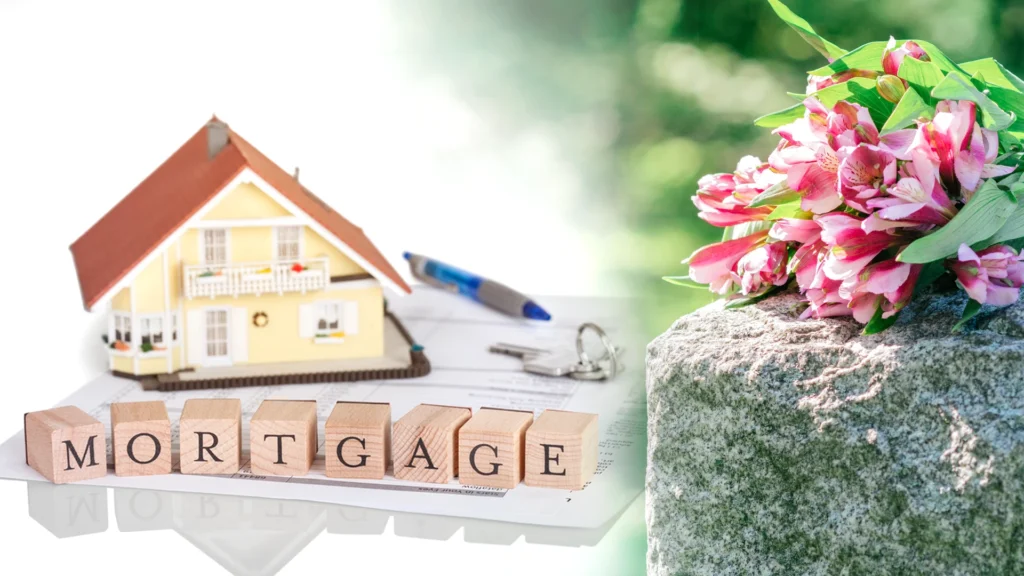Loss is always extremely tough. Alongside the emotional toll it can take, dealing with outstanding finances, probate, and inheritance can add stress to an already difficult time.
You may inherit assets that you need to carefully consider and make tough decisions about. In this article, we’ll explore what happens if you inherit a property with an outstanding mortgage. You may be wondering if you can inherit debt in the UK.
This guide explores what happens to a mortgage when someone dies and what you should do if you inherit a property with an outstanding mortgage.
Understanding outstanding mortgages on inherited property
An outstanding mortgage is simply when the homeowner dies before they’ve finished paying off the balance. When a person dies, debts such as a mortgage or credit card must still be paid off.
In most cases, this becomes the responsibility of the beneficiaries of the estate. You become the owner of the property and any financial or legal obligations that come with it. While the lender has the right to demand the full outstanding amount, they are typically quite reasonable and offer several options.
However, the first thing the executor or beneficiary of an estate should do is inform the mortgage provider about the previous owner’s death. Most will have a grace period where you won’t have to make repayments while awaiting probate.
Once you have officially inherited the property and are the new owner, you’ll need to settle the mortgage.
What happens to a mortgage when someone dies?
Generally, the new owner(s) will have several options to take on or pay off the mortgage.
The estate covers the outstanding mortgage
During the probate process, the deceased’s estate is totalled up and used to pay debts before it is given as inheritance. You may find that there is enough cash or assets within the estate to cover the remaining balance, and you won’t be liable for repayments. In this case, the house becomes yours to do as you want with.
However, this has to be specifically instructed in the will. You will also need to factor in the rules surrounding inheritance tax and property to make sure you’re not liable. In some cases, the money from a life insurance policy can be used to clear the outstanding mortgage.
The property is sold
If the new owner doesn’t have the finances to pay off the mortgage, and they’re unable to take on the monthly repayments, the house can be sold. This is a very common scenario and once the sale has gone through, the lender is paid their share, and the new owner keeps the rest.
If you find yourself in this situation, you may need to sell the house quickly to free up the money. At Zapperty, we will make a cash offer on any home within seven days, so contact us today for a free quote.
You take on the repayments
Maybe you live in rented accommodation, or you want a property for your adult children? If the mortgage lender determines that you (or they) can afford the repayments, you can simply take on the mortgage yourself and live in the property. Many people may take this opportunity to re-mortgage at a more favourable rate or perhaps free up equity.
The property is rented
Some people choose to keep the property and rent it out to cover the repayments. This can be a sensible choice but the mortgage will need to be switched to a buy-to-let. Also, the new owner will be responsible for paying tax on the income, as well as taking on the legal responsibilities of a landlord.
What are the implications of inheriting a property with a mortgage?
When inheriting a property with a mortgage there are some key considerations. For example, you need to be in a financial position where you can make the repayments. Also, the house and the estate may be liable for inheritance tax. Usually, this is paid by the estate before probate, but it is important to check. Likewise, you could also be responsible for paying council tax and any utility bills on the inherited property.
Also, if you are on any benefits that are means-tested, inheriting a property may affect how eligible you are for these. Finally, if you’re considered a first-time buyer, inheriting a residential property can remove this status and any benefits associated with it.
Inheriting Debt in the UK
You can’t inherit debt in the UK. When somebody dies, the debts become liabilities of their estate, and the executor or administrator is responsible for settling them. If the person has taken on a joint loan (such as a mortgage) and the other person survives, they usually take on the full balance. However, they’re not responsible for any personal debts like credit cards or bank loans.
In most cases, people inherit property due to the bereavement of a loved one, and it can be a difficult time. However, by taking on professional advice and weighing up your options, you can find the best solution to inheriting a property with an outstanding mortgage. If you decide you want to sell the property, you’ll need to understand which documents are needed to sell a house.
Remember, we will provide a cash offer on any home within seven days. So why not take away the stress and hassle during a difficult period, and contact Zapperty today.





